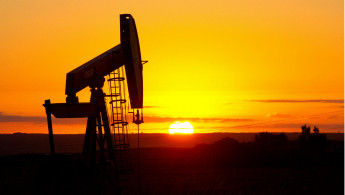A tale of two (oil) states
Abandoned office buildings, broken glass and disused elevators was the scene JP Morgan's chief US economist found when he visited Midland, Texas, recently.
Speaking on television, Michael Feroli said that Texas was racing towards another recession, but this time the economic slowdown would hit shale-oil-producing states such as North Dakota, New Mexico and even Alaska, which only produces conventional oil.
The global slide in oil prices has had an impact on the US, splitting the nation in two between those with oil, and those without.
US states that produce oil, particularly shale oil, are witnessing increasing rates of unemployment, mass business closures - and petrol engineering companies are particularly hard hit.
Almost all companies involved in oil are downsizing their activities and suspending new projects. The economic unviability of shale oil at present means that no new wells are being drilled in these states.
| Office blocks lie empty, thousands have lost their jobs, while fewer and fewer patronise cafes and restaurants. |
Meanwhile, oil consumers are enjoying the lowest oil prices in years, with a gallon of petrol costing as little as $2.19.
In oil-producing states, such as Texas, New Mexico and North Dakota, citizens are beginning to sense the effect of the oil price drop.
Office blocks lie empty, thousands have lost their jobs, while fewer and fewer patronise cafes and restaurants. It brings back memories of the 1980s recession that hit Texas when oil prices last plummeted.
Although many parts of the US is enjoying the low oil prices, others are suffering.
The International Monetary Fund estimates that the recent drop in oil prices could contribute to economic growth of 0.7 percent in 2015. Meanwhile, the International Energy Agency believes that many governments will use this oil price drop to wind down fuel subsidies, which means consumers will see few benefits.
Since OPEC's decision to maintain the production ceiling many US companies have stopped drilling new oil wells altogether, particularly in the Rocky Mountains, Texas, Montana and North Dakota.
New wells would mean new jobs, and could have revived the economic fortunes of these states.
However, with fewer profits to be made from drilling, companies' shares plummet, their debts increase, and workers are laid off. The dream of low prices has become a nightmare in parts of the world's largest economy.
This article is an edited translation from our Arabic edition.



